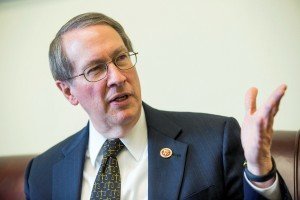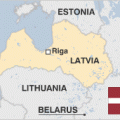
Restoration of America’s Wire Act Opposed by Coalition of 12 Organizations

Rep. Bob Goodlatte (R-Virginia) is the recipient of a letter scribed by 12 organizations in opposition to furthering the Restoration of America’s Wire Act. (Image: Eva Russo/Special to The Washington Times)
The Restoration of America’s Wire Act (RAWA) has been introduced in both the United States Senate and House of Representatives by Republican lawmakers largely thought to have been pressured by GOP mega donor Sheldon Adelson, a multibillionaire that is on the frontline of the charge to condemn online gambling.
Once saying he would spend “whatever it takes” to see RAWA passed, an alliance of 12 organizations have come together to defend the issue’s other side, writing a letter this week to House Judiciary Committee Rep. Bob Goodlatte (R-Virginia) encouraging the judicial body to defend the 10th Amendment and continue to grant states with the power to regulate their own affairs.
Led by the Center for Freedom and Prosperity (CF&P), a non-profit whose goal is to advance market liberalization, the letter confronts Goodlatte’s quagmire in that the 12-term representative has long opposed gambling but has also consistently advocated for states’ rights.
Anti-RAWA, Party of 12
Along with the CF&P, various Washington, DC, lobbying groups and political institutions are backing the memorandum opposing RAWA including:
Competitive Enterprise Institute
Citizens Against Government Waste
The American Conservative Union
Less Government
R Street Institute
Independent Women’s Forum
Ron Paul’s Campaign for Liberty
Independent Women’s Voice
Sovereign Society Freedom Alliance
Center for Individual Freedom
Taxpayers Protection Alliance
The overall theme of the co-signers posses is the fact they wish for more freedom from the federal government.
What’s challenging to Republicans is the fact that the party has historically been in favor of smaller government, but also smaller gambling. RAWA puts GOP politicians in quite the predicament.
“Proponents of the legislation are seeking to rollback state laws and prohibit other states from exercising their constitutional authority,” the coalition writes. “We encourage you to continue to stand up for the Constitution, the Tenth Amendment, and the ability of the states to regulate their own affairs.”
Republicans control both judiciary committees in the House and Senate.
Often called the “lawyer” of each chamber, RAWA will need to gain majority support from the boards if it has any chance of reaching a congressional floor.
More Moylan
At the end of last March, Rep. Jason Chaffetz (R-Utah), the RAWA lead sponsor in the House, persuaded the Judiciary Committee’s Subcommittee on Crime, Terrorism, Homeland Security, and Investigations to listen to testimony on the dangers of online gambling.
Chaffetz stacked the deck in his favor, with three of the five invited witnesses adamantly hostile to iGambling. Andrew Moylan, executive director of R Street Institute, a non-partisan “think tank,” was the highlight of the hearing for proponents of legalized online poker and gaming.
“From the perspective of federalism, an argument of this nature is problematic, to say the least,” Moylan said of RAWA during the hearing. He added that the legislation “would constitute an enormous shove down the slippery slope toward federal power without meaningful limits.”
Though somewhat cautious in his language last March, Moylan’s position appears to have solidified as anti-RAWA over the last six months.
“We assume there will be a last ditch effort prior to the 2016 elections to see this provision enacted into law,” the coalition concludes. “We urge your continued principled opposition to the Las Vegas rent-seekers… This bill is an assault on the constitutional values we all hold dear.”















0 Comments